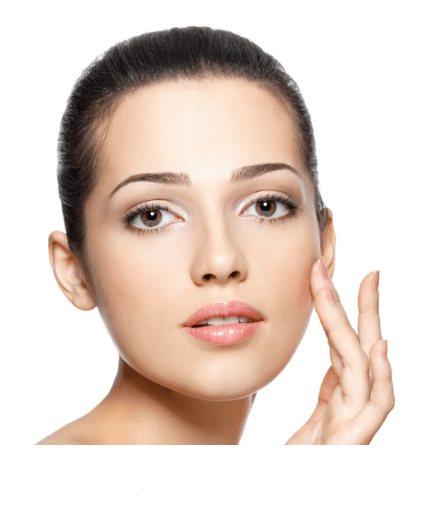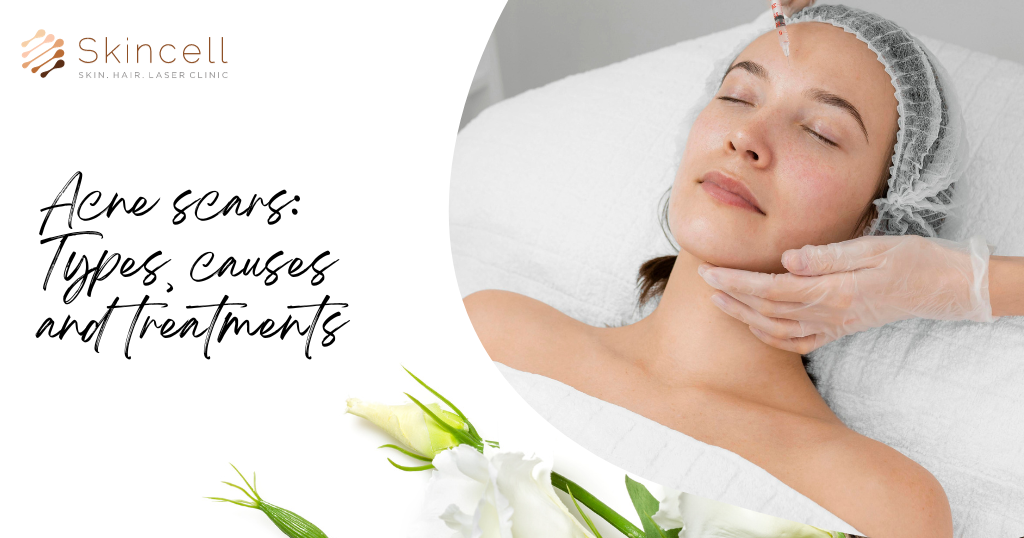Introduction
Acne occurs when skin pores become clogged with oil and dead cells, causing the body’s natural healing processes to fail. It may appear near the surface, healing quickly with minimal scarring. Deeper acne takes longer to heal, often leaving scars. Treatment options depend on the type and condition. Consult dermatologist near me who have been helping patients treat both active acne outbreaks and the scarring that can result from lesions at Skincell clinic.
Types of Acne scars
Unlike the common notion, not all people who have acne, have acne scars. The good part is that it is curable.
Acne scars may have the same origin, but they can be of different types:
- Atrophic Acne Scars: During acne formation, if there is a loss of tissue, then there is an indentation in the surface of the skin. This causes imbalance scarring.
- Hypertrophic Scars: Also known as keloid scars, hypertrophic scars are caused by the growth of fibrous tissue of the skin. If your skin, while treating the acne, releases too much collagen, a scar is developed that is raised from the surface of the skin.
- Post Inflammatory Hyperpigmentation (PIH): It is characterized by dark spots or discoloration left behind by the severe acne breakouts. During the healing process, melanin production increases in skin which leads to formation of acne marks.
Causes
Our skin is the largest organ with three main layers: the epidermis (outermost), the dermis, and the hypodermis. These layers protect the fragile inside of our bodies from external, harmful elements. In addition, the skin in our face, back, and chest has sebaceous glands, a small oil-producing gland that protects against friction and makes the skin more impervious to moisture. It is also the reason for acne.
When the acne blemish gets inflamed, acne scars are formed. This is because acne pores swell and break down on the walls of the pore. Normally the acne blemish is small, and the scars are shallow, so they heal quickly. However, at times the contents of the blemish spill to the surrounding tissues causing deeper scars.
Treatment
Natural remedies to remove acne scars
Once you have an acne scar, you can start your treatment at home by making small changes to your habits like treating the acne as it develops, not popping or picking on our acne as it can make the scar worse. However, if you have popped the acne and it has turned into a scab, make sure not to pick at the scab.
Some efficient natural remedies to remove scars are:
- Alovera Gel
- Honey
- Lemon juice
Acne scars are frustrating and especially when they develop in the visible areas of your face and body. Medication can help you reduce their visibility, but you can also undergo acne treatment to get rid of scarring.
Here is a list of popular acne treatment options:
- Laser treatments
- Dermabrasion
- Chemical peelings
- Dermal filler injections
- Topical medications
- Oral medication
- Incision and drainage
- Corticosteroid
- Cryosurgery
In case of severe skin damage, the use of simple home remedies alone might not be enough to fade away the acne scars effectively. Fortunately, topical acne scars treatment products have delivered satisfactory results in refining the skin texture. Topical ingredients speed up skin regeneration to diminish acne scars while promoting collagen production.
Conclusion
Acne scars can take various forms, including atrophic (depressed), hypertrophic (raised), and pigmented marks. They result from inflammatory acne lesions that damage the skin’s collagen and elastin. Causes include severe acne, picking or popping pimples, and genetic predisposition. Effective treatments encompass topical creams, chemical peels, microdermabrasion, laser therapy, and surgical procedures like subcision or punch excision. Combining multiple modalities often yields the best results. Timely intervention and professional guidance are crucial to minimize the appearance of acne scars and restore smoother, more even skin. Consult the best dermatologist in Bangalore at Skincell clinic for an effective remedy.

